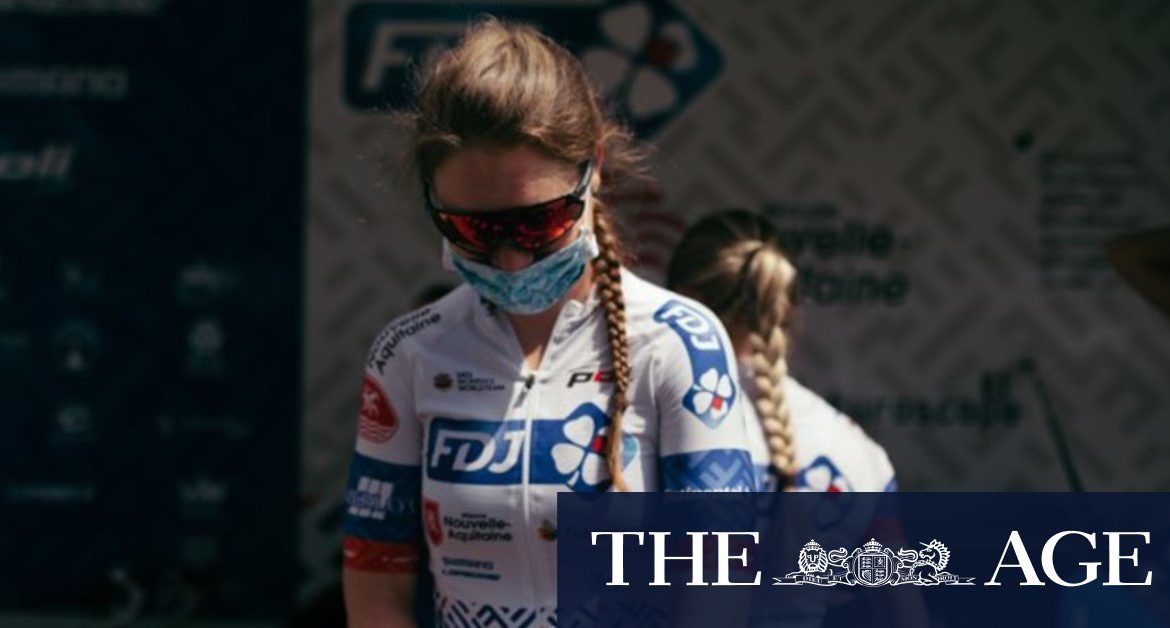“[I] also struggled a lot mentally with emotions, the response from concussion basically. I’d never realised the impacts of that. I’ve seen it a lot, concussion, and aware of it but how can you tell your own head if it’s you? It’s really strange.
“When you get a broken arm or a broken leg, you know, you can see it, but when there is something not quite right in your head you don’t know. That was challenging to pick up and then recognise and then deal with [it with] the team.”
When you get a broken arm or a broken leg, you know, you can see it, but when there is something not quite right in your head you don’t know.
Lauren Kitchen on the ramifications of concussion
Confusion, headaches, blurry vision, memory loss, nausea and vomiting are symptoms typically associated with concussion, immediate but temporary effects that belie Kitchen’s confronting and longer-term experience.
“For me, I really struggled with emotions and it went for a few months. But as soon as I recognised it, and I still notice things are a bit different from that, but I went and saw some holistic people as well because doctors, they don’t understand, in my opinion, enough yet and I’m more confident in the people that I trust,” she said.
“Accepting that I wasn’t 100 per cent was the biggest thing for me and talking about it.
“That was challenging and definitely threw my season, but I did again learn a lot in all of that, so it wasn’t terrible, but it wasn’t a season to remember with results or anything.”
Kitchen is aiming to compete at the national road championships in Buninyong, Victoria next month, state border closures with her native NSW permitting, before returning to the home she has bought in France. The cobbled classics, world championships in Belgium and Tokyo Olympic Games selection are key objectives this year but Kitchen admits she doesn’t know what to expect when competition resumes abroad.
The former Oceania road champion was last year uneasy about competing within an international peloton, across Europe amid the pandemic and believes, despite rigorous UCI testing, that there were more positive COVID-19 cases in the sponsorship-dependent sport than publicly announced.
“It’s very tough in Europe at the moment, travel, races. My team, the girls, we didn’t want to race because we were genuinely concerned we would get the virus and pass it on and how does that affect us?” Kitchen said.
“We all know lots of people that have had the virus and I think there’s a lot of women who have had it that haven’t been publicly announced within the peloton.
“There’s a lot more than what’s been said, and I think there’s a genuine concern, but the teams at some point are like ‘you have to race’ because they need to promote the sponsors, so it’s really hard. That created a lot of anxiety, and the amount of tests you have to have and organising that yourself to an extent is challenging, different countries and all that.
“What we saw last year was every race was so important for everyone. Everyone was sort of desperate and I think that’s also why there was probably a lot of crashes in general in the men’s and women’s [peloton]. There’s more pressure and anxiety around everything so people take more risks but also are more nervous and stressed. I wouldn’t be surprised if that continues a little bit.”
Sophie is a cycling contributor and casual sports desk editor at The Age. She’s covered eight Tours de France as a journalist and television reporter/presenter.
Most Viewed in Sport
Loading







